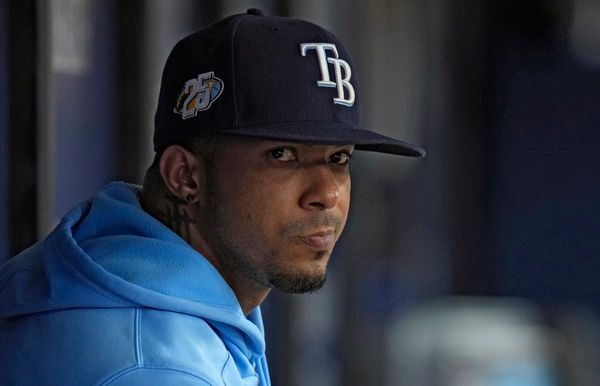
“When my mum died, we had two hats to wear,” said Prince Harry as he opened up about the trauma of having to mourn his mother in public. “One was two grieving sons wanting to cry, grieve and process that grief because of losing our mum. And two was the royal hat – show no emotion, get out there and meet the people, shake their hands.”
The death of Diana, Princess of Wales, who was killed in a car crash in Paris in 1997, looms over the six-part Netflix docuseries Harry & Meghan. In the first episode, a 12-year-old Harry and his older brother, Prince William, admire floral tributes and greet weeping mourners on the day before their mother’s funeral.
“The UK literally swept me and William up as their children. An expectation to see myself and William out and about was really hard for the two of us,” Harry said.
Dr Linda Blair, a clinical psychologist, recalled watching the footage of the two young princes marching in the funeral procession behind their mother’s coffin. “We all wanted to hug them, didn’t we?” she said. “At that point, I had nothing but deepest admiration for their ability to wear those ‘two hats’, and I only pray that they had someone to talk to about it.”
She stressed the importance of speaking to children who are suffering bereavement. “First of all I would say you don’t get over it, you get through it. And it depends on how you’re encouraged to negotiate your feelings. So it’s who’s left behind and the attention and time they give you that can make the difference,” she said.
“At that age, children obviously understand that death is a permanent thing, and there’s often fear – ‘who else am I going to lose or am I going to die?’ – because the idea of death has been pushed into their face. And so time to talk about it is really important, but talk about it their way.”
In the documentary Harry, 38, said he did not receive the right support in the aftermath of his mother’s death. “I was trying to balance the whole experience of being a young boy who was trying to deal with the loss of his mum without much support or help or guidance. It didn’t seem right, it didn’t seem fair,” he said.
Harry has spoken candidly in recent years about his mental health struggles and the impact of his mother’s death. He said he started therapy at the age of 28 after feeling “on the verge of punching someone”. Last year, he sought a special trauma therapy programme known as EMDR (Eye Movement Desensitisation and Reprocessing) to treat the unresolved anxiety stemming from his grief.
The Guardian’s advice columnist Annalisa Barbieri, who has interviewed trauma experts, said: “When something is traumatic, it doesn’t go down in the brain in the same way as a normal memory. And so it can get replayed because you’re trying to make sense of it. So if one is bereaved and it’s been quite traumatic, as I imagine it probably would have been if you’re 12 and your mother’s killed in a car accident, then you might get quite stuck there unless someone helps you out of it,” she said.
“If you were writing to me but I didn’t know it was him, I think I would be really worried that he’s a little boy stuck at 12 and couldn’t save his mum, because, like I said, I think trauma sticks, you’re right back there,” she added.
Letizia Perna, a psychotherapist and director of services at childhood bereavement charity Winston’s Wish, said it is not surprising that Harry has continued to return to the topic of his loss.
“For young children particularly, it is not unsurprising that grief has peaks at various aspects of their lives,” she said. “So we think about when Harry and Meghan got married, I’m sure Harry thought of his mum, mum wasn’t there, mum should have been there. The birth of his children, mum should have been there – that concept of ‘this is your granny but you’ll never meet her’ is very much alive for him at the moment.”
But Perna added that Harry’s honesty could help others. “I think these are the bits of Harry that I’ve loved the most in some sense, because effectively what he’s told us all is: ‘You don’t forget. It doesn’t go away. Time does not heal the wound, the wound is there,’” she said.
“And I think that that’s a recognition that a lot of grieving people have needed. That it’s OK, that despite the fact it’s been now however many years for Harry, he’s still grieving, he is still a bereaved child in some sense. He’s still a bereaved person and that wound and that pain doesn’t go away.”
• In the UK, the charity Mind is available on 0300 123 3393 and ChildLine on 0800 1111. In the US, Mental Health America is available on 800-273-8255. In Australia, support is available at Beyond Blue on 1300 22 4636, Lifeline on 13 11 14, and at MensLine on 1300 789 978







